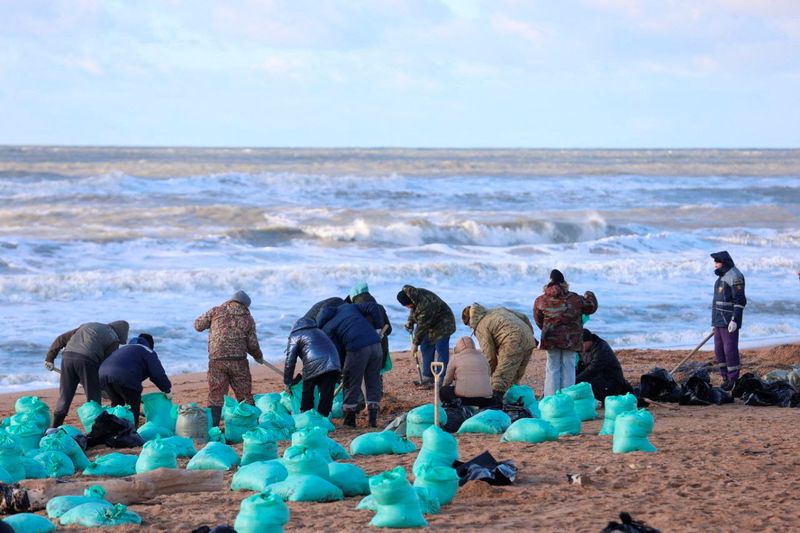'Oil is everywhere': Russians tackle Black Sea spill
MOSCOW (Reuters) - An oil spill from damaged tankers has contaminated a long stretch of sandy beaches along the Russian Black Sea shoreline, polluting the air and threatening wildlife in one of the worst ecological disasters to hit the region in years.
Around 4,000 volunteers have been cleaning beaches near the resort city of Anapa from the spill from two tankers, which were damaged by a storm on Sunday, a local task force said.
The emergencies ministry said the clean-up operation stretched along 49 km (30 miles) of shoreline.
Numerous videos posted on social media showed birds floundering in oil, flapping their wings and struggling to fly. Black oil spots were also visible along the beaches.
"It was impossible to breath, I thought it was my car emitting the smoke...Oil has come to us. I can't go any further: it's oil, oil, oil," a man's voice said in a video posted on social media. Reuters could not verify the video which purported to show consequences of the fuel oil spill along the sea coast.
The stricken tankers, both more than 50 years old, were carrying some 9,200 metric tons (62,000 barrels) of oil products in total, TASS news agency reported, but the scale of the leakage is still unknown.
The vessels were in the Kerch Strait between mainland Russia and Crimea, which Russia annexed from Ukraine in 2014, when they issued distress signals.
TASS news agency said on Tuesday a third tanker had issued a distress signal but its hull was still intact, there was no oil spillage and the crew was safe.
Russian authorities declared a state of emergency in several districts, including in Anapa, a popular tourist destination near the Sea of Azov.
Russian Foreign Ministry's spokesperson Maria Zakharova appealed to volunteers for help.
"Anapa is fighting the oil spill, saving beaches. The famous ones with the golden sand, which hundreds of thousands of tourists flock to every year," she wrote on her Telegram channel.
"City authorities are working. The Ministry of Emergency Situations is working. But we can't do it without the help of volunteers."
Source: Investing.com
